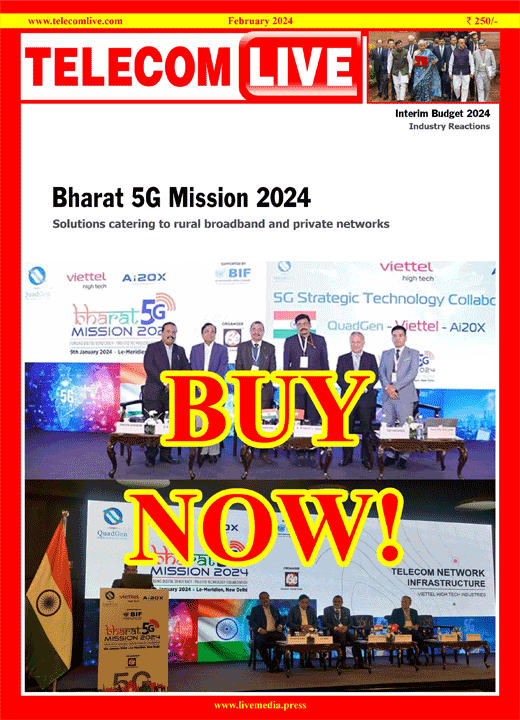Revision of min fixed broadband download speed to ensure common QoE for users: BIF
The Telecom Regulatory Authority of India (TRAI)’s decision to revise minimum download speed of wired broadband to 2Mbps from 512kbps will ensure a common minimum quality of experience (QoE) for all users and the categorization of fixed broadband services based on download speeds resonates with international best practices that will help consumers in making informed decisions regarding their subscriptions, said industry body Broadband India Forum (BIF) in a statement on Wednesday.
TRAI in its recommendations has proposed to categorize broadband connection in three categories — ‘Basic Broadband’, ‘Fast Broadband’, and ‘Super-fast Broadband’.
A ‘Basic Broadband’ connection can deliver download speed equal to or greater than 2Mbps but less than 50Mbps to individual subscribers, while ‘Fast Broadband’ refers to a connection capable of providing download speeds equal to or greater than 50 Mbps and less than 300 Mbps. ‘Super-fast Broadband’ is one which can deliver download speeds equal to or greater than 300 Mbps.
The sector regulator Tuesday released recommendations running upto 298-pages to ramp up broadband connectivity in India, specifically in rural areas by way of Direct Benefit Transfer or DBT.
“Given that our present broadband speeds are significantly low in comparison to international good practices, revising the minimum broadband speed to 2 Mbps is an essential step, both as per the national policy mandates as well as global benchmarks… The regulator’s historic suggestion to create a practical demand-side pull by incentivising the consumers through a DBT programme could help proliferate rural digital connectivity like never before,” commented TV Ramachandran, President, Broadband India Forum.
TRAI has recommended that licensees should be eligible for incentives such as license fee exemption, for a period of five years if they achieve subscriber increase targets in smaller cities, towns, and rural areas.
“The suggested incentive to boost broadband penetration via license fee exemption to service providers for an initial period of 5 years, is likely to provide further boost to rural broadband penetration,” BIF said. It added that the detailed monitoring mechanism recommended to have periodic assessment of the efficacy of the incentive scheme would also ensure consistent checks on the deliverables from the service provider’s end.
“Initially, the proposed incentive, i.e. license fee exemption, to the eligible licensees should be allowed for a minimum period of five years. The need for incentives beyond the initial five years may be reviewed in the fifth year keeping in view the policy priorities and technological developments at that point of time,” TRAI said in its recommendations. Companies pay 8% of their adjusted gross revenue as license fee for providing wired broadband services.
Currently, India’s fixed broadband penetration is the lowest worldwide at only 2%, and it lags behind China (95%), Brazil (55%), and Russia (60%).
“If we are to truly accomplish the vision of an inclusive Digital India, exceedingly higher rates of penetration have to be achieved, especially in the rural areas,” Ramachandran added.
Additionally, the regulator has also made recommendations towards addressing concerning the Right of Way (RoW) through multiple measures such as the creation of a National RoW policy with amendments to existing RoW rules, creation of a National RoW Council, incentivization of establishment of common ducts and poles through the exemption of RoW charges, among others.











